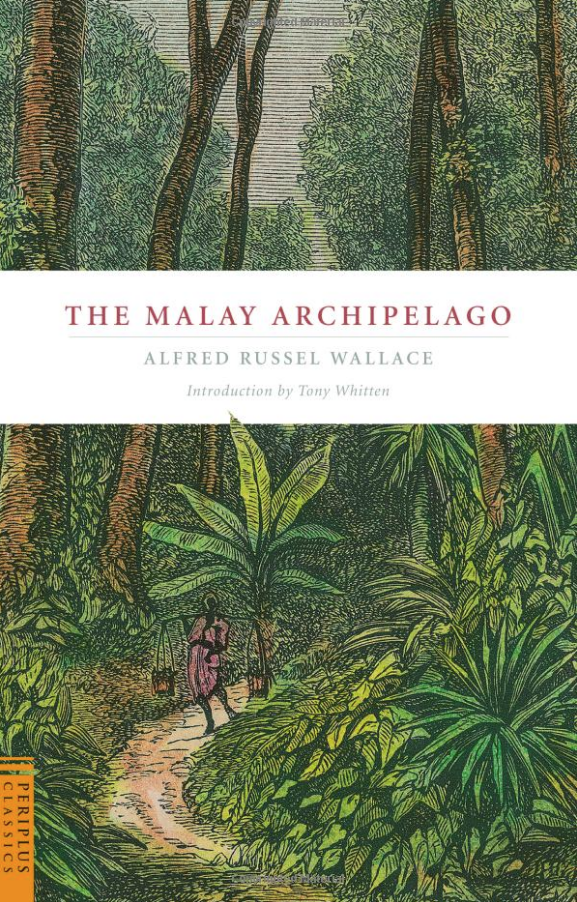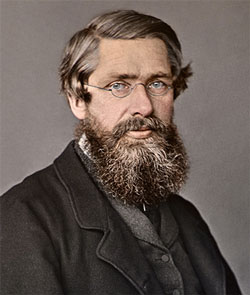

More archival shenanigans!
Alfred Russell Wallace’s Malay Archipelago is a wonderful Victorian-era adventure, combining travel to far-flung exotic locations with myriad fascinating themes, from the roots of science in collecting specimens in the field, to C19th commerce, imperialism, and even anthropology and philosophy. This is not the author’s equivalent to On The Origins (he wrote no such work), but rather his counterpart, of sorts, to Darwin’s Voyage of the Beagle.
Because of this I certainly wouldn’t go as far as the writer of the back cover blurb on this Periplus edition – who asserts that Alfred Russell Wallace “deserves equal billing with Charles Darwin for his independently drawn but parallel conclusions on the theory of evolution” – because, like Wallace himself, I feel Darwin’s stupendous amount of research work quite justifies his precedence. Nevertheless this is certainly as exciting a read as Darwin’s Voyage of the Beagle, and certainly Wallace deserves to be – and is clearly gradually becoming – much better known.

It was via David Attenborough’s enthusiasm for Wallace and this book – an illustration in which ignited a passion for Birds of Paradise in the young Attenborough, begetting a lifelong obsession, resulting in numerous trips, films and books – along with my continued avid reading of Darwin related material, which lead me to eventually request this book as a birthday present (thanks mum!). I have the very handsome – and often hard to find (it seems to go out of print regularly!) – Periplus edition.
Essentially this is a write up of Wallace’s travels in the Malay Archipelago, where he was collecting wildlife specimens for private collectors, back home in Great Britain. As well as being a tireless collector and ardent observer of both the wildlife specimens – mainly bugs and birds – and the natural history observations that go with them, Wallace was a very eloquent thoughtful man. As a result you get a mixture of natural history, adventure, anthropology, and so on. The indefatigable energy and industry, and the omnivorous enthusiasm and inquisitiveness of men like Wallace and Darwin, so alike and yet also so different, continues to fascinate and inspire.
This is by turns exciting, amusing and enlightening, illuminating wonderfully how the worlds of commerce, adventure, and science met, in the exotic islands of the Malay archipelgo and the person of a self-made polymath adventurer.
